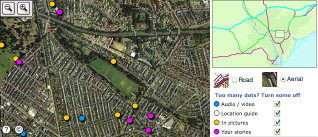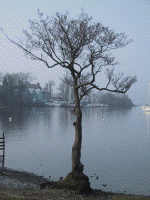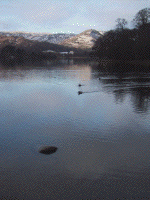I had been struck by Blair’s long-awaited statement about the manner of the execution of saddam, that he belatedely made last Tuesday evening. However, I wanted to be suer of what he said, so yesterday evening attempted to find out. Perhaps I am just too poor a web-user, but I found it incredibly difficult. Google seraches fund many earelier news articles about the fact that he hadnlt said anthing at that stage, and ones from earelier last week saying what he was about to say something and what it would be (now-a-days it seems news is written before the event), but nothing reporting what he said or when he said it (I couldn’t recall the exect day either).Having found earlier or later articles in newspapers and on the BBC I thought it should be easy to trace from them to related ones and hence the statement I was after … but no. While most seem to offer long term “most important stories in 2005” archives, there does not appear to be an easy way (or possibly any way) to say “what was the BBC online stories for Wednesday January 12th 2007?”.
I did find the ‘number 10‘ site that does have a list of the prime minister’s speaches and statements, but of course not all his statements, just the ones they want you to read!
Eventually yahoo! news came to the rescue (albeit found through Google!) with a more recent article, but with links to background including a guardian online article from last wednesday … which yes! did have the full text of the relevant part of the statement:
As has been very obvious from the comments of other ministers and indeed from my own official spokesman, the manner of the execution of Saddam was completely wrong. But that should not blind us to the crimes he committed against his own people, including the death of hundreds of thousands of innocent Iraqis, one million casualties in the Iran/Iraq war and the use of chemical weapons against his own people, wiping out entire villages.
So the crimes that Saddam committed does not excuse the manner of his execution but the manner of his execution does not excuse the crimes.
Now to be fair, knowing this was accessible I tried an alternative tack and searched inside the guardian site using keywords and was able to find the article that way. Having realised this and did some searches on the bbc site and got the video of the statement. (Once I’d found suitable serach terms!)
So on newspaper and the bbc sites it seems you can do google-style searches, but not (unless I’m still missing something) ask “what was on the news last Wednesday” or (reasonably completely) what are the related articles to this one.
Obviously in a pre-web world I would not expect to be able to do this. I could (and still could) visit the British Library for old copies of newspapers (I assume they keep them) and for the last week possibly the local library. But of course when information is available it is not what you could find that counts, but what is easiest. The information that is available is the information that gets seen. Even in university our students are reluctant to read books as they believe they can find all they need on the web.
Now the reason I wanted to find the Blair statement was the reference to “one million casualties in the Iran/Iraq war”. He was rightly pointing out that the failings of the legal process of his execution should not blind us to the horror of his crimes. Now given the delay I assume the words were well prepared, and yet of three crimes things he noted one was this.
I guess the figure of 1 million sounded good (big numbers always impress), but to mention this without also noting that that war was waged with the complicit and explicit support of many countries including the UK and US seems at best amnesiac and at worst deceptive. Does he really not know this? Or is he simply hoping most who hear it won’t?
I can recall the Iran-Iraq war as a young adult, but those younger will have been in school and even for those around at the time I’m sure the memories get a little fuzzy, so perhaps he can get away with this type of manipulation. Or perhaps it is tht he only partly recalls the events and honestly presents this?
The US involvement is well documented, both in terms of miltary presence in the Gulf at the time, officially neutrally, but with minimal pretense acting against Iran who was then the ‘evil power’. Indeed (recalling my own and Nad’s earlier posts about the execution), in looking for this I found George Washington University’s National Security Archive of declaissified documents. In this there is a photograph of Donald Rumsfeld, then a special envoy from President Reagan, shaking hands with Saddam Hussein. This is not surprising, diplomatc have to do this all the time. Significantly though this meeting was, as the national secturity archives show, shortly after US intelligence had confirmed Iraq’s use of chemical weapons (Blair’s point 3) and discussed this at a presidential level. The US (in full knowledge) then went on to block UN resolutions deploring Iraq use of chemical weapons … initially with UK support. the ful story of UK support, I’m sure is there, but even harder to find … I seem to recall British warships in the gulf, but it was more than 20 years ago!
I an age of instant information, it is amazing that getting the basic facts of ongoing news items is so difficult. I recall a year or so back there was a call for journalists to give more context in theor reporting. However, when interviews a respected journalist insisted that theor job was the news, the changes not the backgrund … but without the background the interpretation of what we hear is different.
If journalists do not see it as their job to give such background and it is still so hard to find elsewhere, then politicians can go on deceiving themselves and their people.





